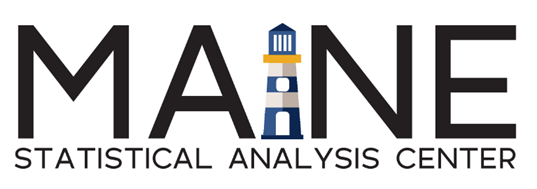Reports and Publications
View the Maine SAC’s latest reports and publications.

Assessing Protection from Abuse Orders in Maine
This report is the result of an 18-month research project the Maine SAC conducted which included scanning and analyzing a year’s worth of final protection from abuse (PFA) orders and generating a first-of-its-kind dataset for Maine. Maine SAC researchers traveled over 3,400 miles to 25 district courts statewide, where they reviewed thousands of 2023 case files. Researchers generated a dataset of 2,079 cases. This report contains key findings and recommendations for further research.
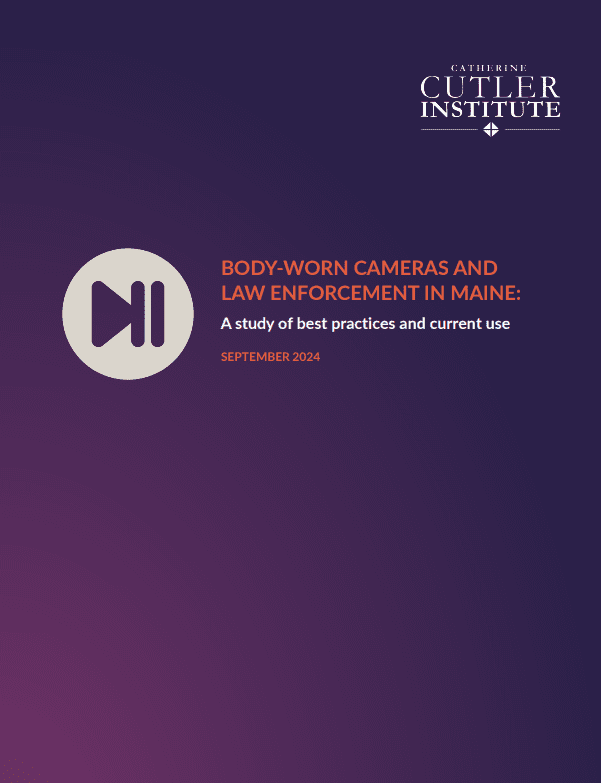
Body-Worn Cameras and Law Enforcement in Maine
The report is a culmination of a study initiated by Attorney General Aaron M. Frey in late 2023, during which the Maine Statistical Analysis Center of the Catherine Cutler Institute at the University of Southern Maine explored nationally recognized best practices and gathered current information on body-worn camera (BWC) use, policies, costs, and trends in Maine. It provides highlights from the latest national research on BWCs, a snapshot of the use of BWCs in Maine, and an analysis of the policies that have been formulated in Maine to guide their use.

New Mexico Crime Victimization Report
The purpose of the New Mexico Crime Victimization Survey was to understand the extent of criminal victimization, crime reporting, and assistance seeking for four types of crime (stalking, rape, sexual assault, and domestic violence) and to identify differences in rates between demographic groups. This survey, patterned after the National Crime Victimization Survey (NCVS), found that forty percent (40%) of respondents had been the victim of at least one of the four types of crime within the last 12 months while they were in New Mexico.
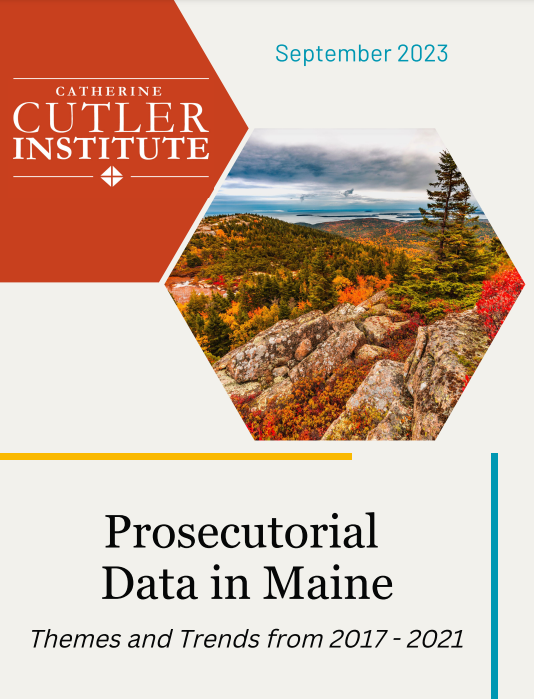
Prosecutorial Data in Maine: Themes and Trends from 2017-2021
The number of criminal cases referred to Maine courts dropped considerably in 2020 and continued to fall in 2021 as well, according to Prosecutorial Data in Maine: Themes and Trends from 2017-2021, a report compiled by the University of Southern Maine’s Maine Statistical Analysis Center (SAC) for the Maine Prosecutors Association (MPA).
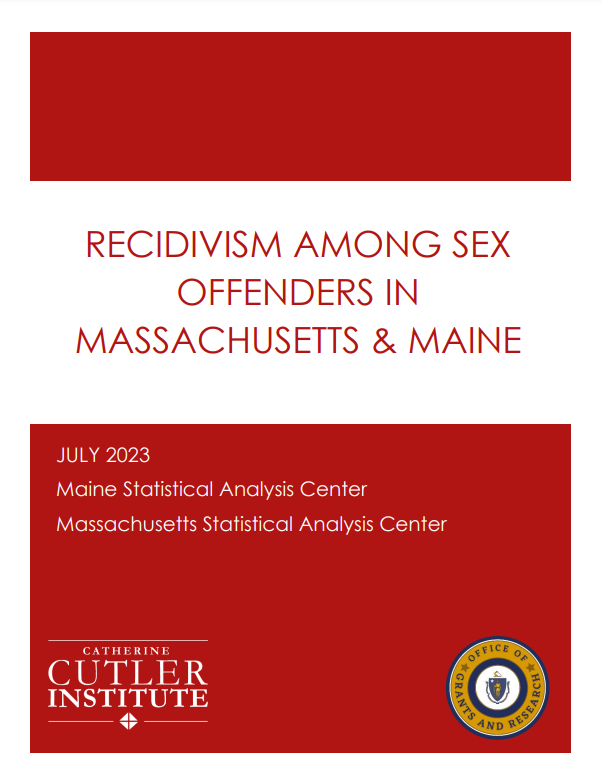
Recidivism Among Sex Offenders in Massachusetts and Maine
This project studied the recidivism rates of Maine sex offenders who were released from prison between 2005 and 2019 and Massachusetts sex offenders released between 2009 and 2018. In total, the Massachusetts cohort was composed of 1,210 offenders, and the Maine study of 905 offenders. Criminal history records were obtained for each offender from their respective states to determine whether the offender recidivated (i.e., committed post-release offenses that resulted in a conviction).
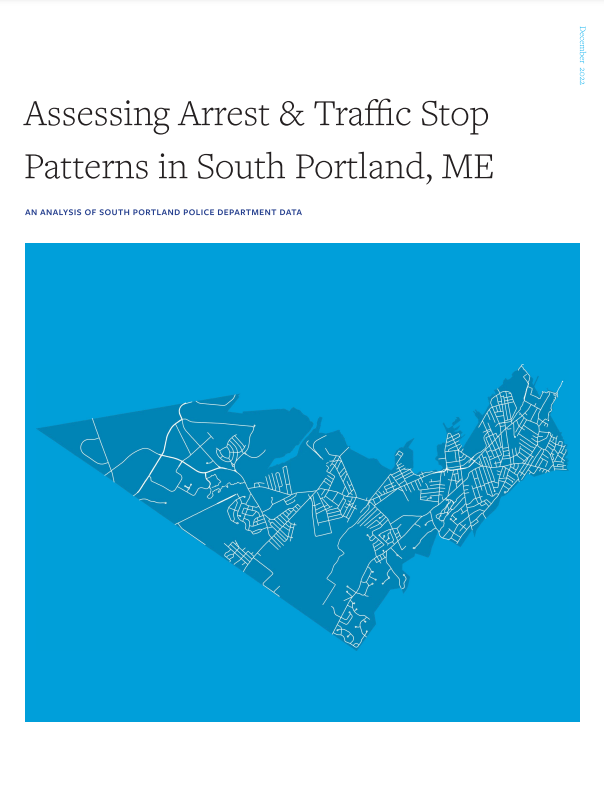
Assessing Arrest and Traffic Stop Patterns in South Portland, ME
In a report, co-authored by the University of Southern Maine’s Catherine Cutler Institute and Northeastern University’s Institute on Race and Justice in the School of Criminology and Criminal Justice, researchers found no evidence that demonstrates severe or persistent occurrences of biased-based policing at the Portland Police Department. However, the study did find that Black or African American individuals experience disparities in arrests in Portland. Funded by the cities of Portland and South Portland and Northeastern University’s Roux Institute based in Portland, the study was commissioned to explore whether either of the departments engaged in disproportionate enforcement activities.
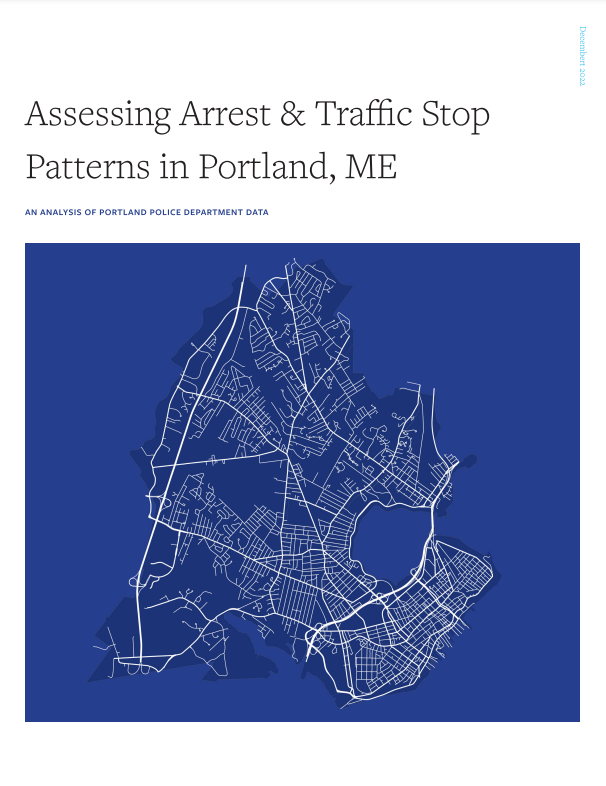
Assessing Arrest and Traffic Stop Patterns in Portland, ME
In a report, co-authored by the University of Southern Maine’s Catherine Cutler Institute and Northeastern University’s Institute on Race and Justice in the School of Criminology and Criminal Justice, researchers found no evidence that demonstrates severe or persistent occurrences of biased-based policing at the Portland Police Department. However, the study did find that Black or African American individuals experience disparities in arrests in Portland. Funded by the cities of Portland and South Portland and Northeastern University’s Roux Institute based in Portland, the study was commissioned to explore whether either of the departments engaged in disproportionate enforcement activities.
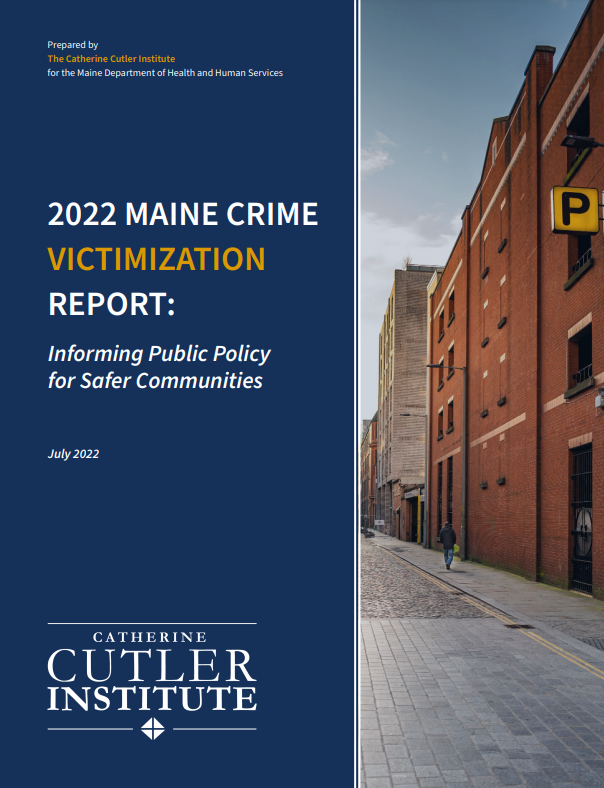
2022 Maine Crime Victimization Report: Informing Public Policy for Safer Communities
The Maine Crime Victimization Survey (MCVS) is periodically conducted to raise awareness of crime victimization trends in Maine among Maine policymakers, practitioners, advocacy organizations, and the public. The current report is the fourth iteration, with previous studies conducted in 2006, 2010, and 2014. While state and local agencies also collect data, George Shaler, co-author and Director of USM’s Maine SAC, explains why the findings of this survey are unique. “Unlike data reported by agencies at the state or local level,” he states, “the MCVS findings reflect both reported and unreported crimes as well as characteristics of victims.”
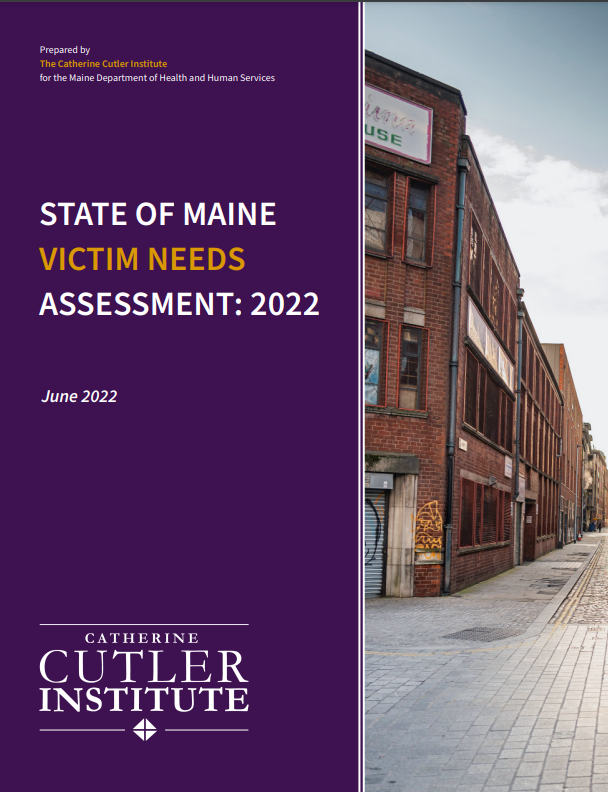
State of Maine Victims Needs Assessment: 2022
The State of Maine Victim Needs Assessment (VSNA), completed by the University of Southern Maine’s Catherine Cutler Institute, documents concerns about the unmet needs of crime victims in Maine. Specifically, people of color are more likely to experience almost every type of crime and while rates for reporting crime and seeking services are higher for these victims, available services are often inaccessible due to cultural and language barriers. The 2022 VSNA found that mainstream victim service providers self-identified that they need more formal training opportunities that specifically address services and outreach strategies for meeting the needs of diverse populations, especially for individuals that have been a victim of a crime. Culturally specific organizations that are embedded in these communities provide comprehensive services yet report being underfunded and under-resourced.
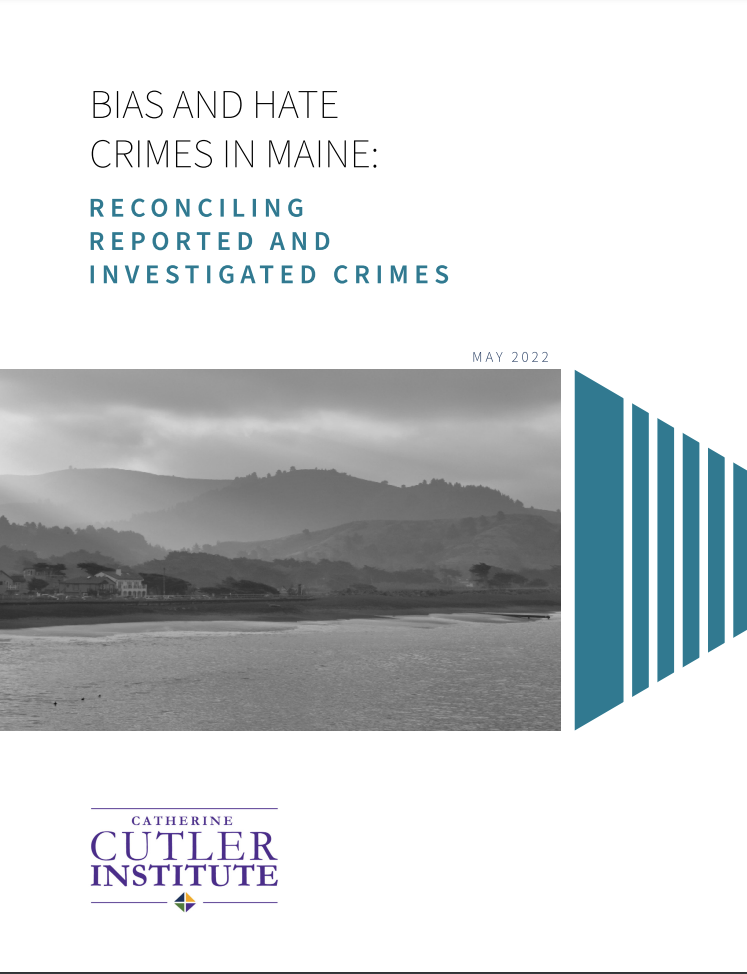
Bias and Hate Crimes in Maine: Reconciling Reported and Investigated Crimes
The Maine Statistical Analysis Center (SAC) worked with several criminal justice stakeholders across the state to determine arrest rates and outcomes for hate and bias crimes in Maine that were reported by law enforcement to the Federal Bureau of Investigation’s (FBI) Uniform Crime Report (UCR) program from 2008 to 2017. Hate and bias-motivated crimes in Maine that were reported to the FBI’s UCR program decreased by 49% from 2008 to 2017.
